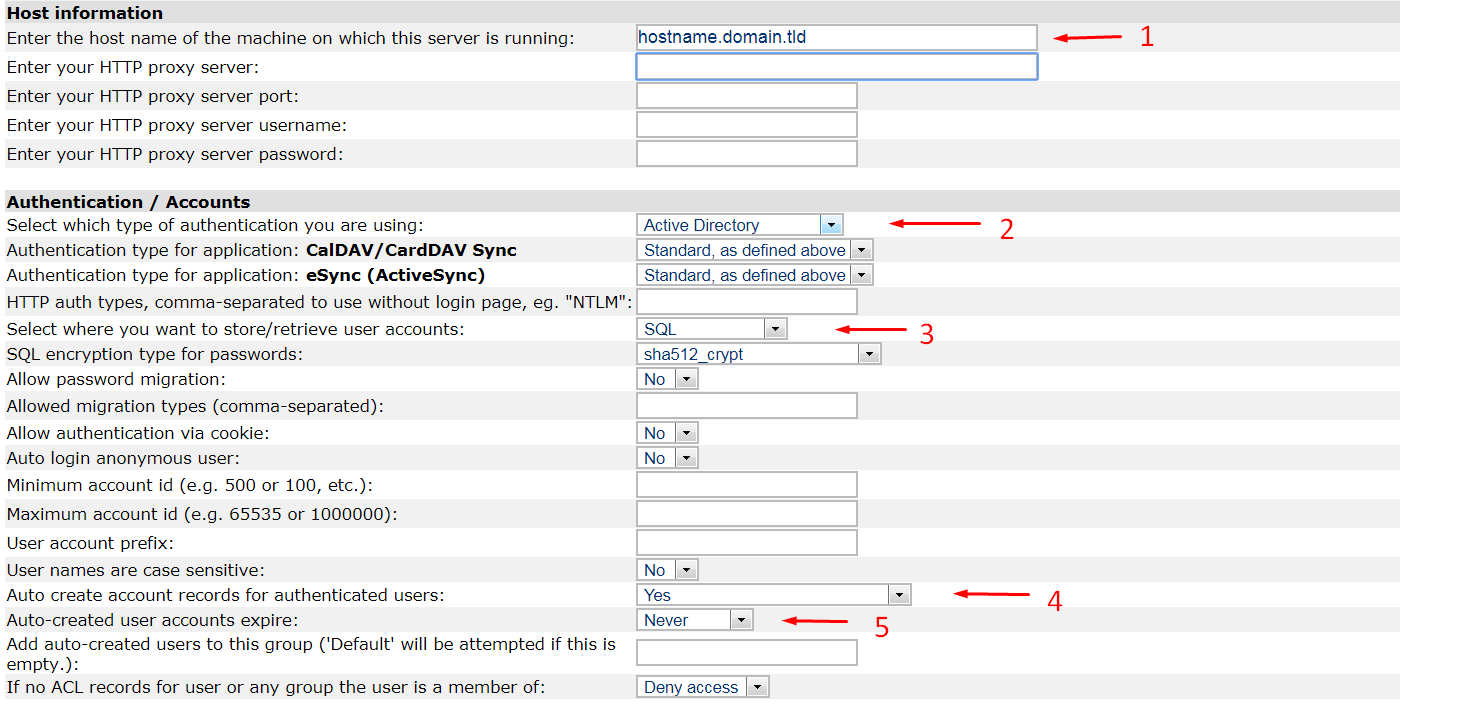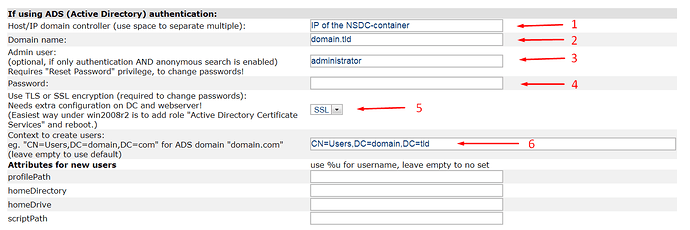Installation of eGroupware Community Edition on NS7 Active Directory
NOTE: This HowTo is obsolete, because eGroupware 17 and above needs php >= 5.6 and CentOS upstream default is php 5.4. It’s possibel to install php > 5.4 on nethserver, bur be aware, that there are some incompatibilities with neth-GUI. php-SCL is no solution, cause installscript of eGroupware checks basic installed php-version. 26.11.2018
eGroupware is a powerfull Groupwareserver with calendaring, email (internal and external imap), adressbook, resource planning tool, timesheet function, tracking system, file manager for home directory, and a news feature.
install eGroupware-repo:
cd /etc/yum.repos.d
vi eGroupWare.repo
[eGroupWare]
name=EGroupware (CentOS_7)
type=rpm-md
baseurl=http://download.opensuse.org/repositories/server:/eGroupWare/CentOS_7/
gpgcheck=1
gpgkey=http://download.opensuse.org/repositories/server:/eGroupWare/CentOS_7//repodata/repomd.xml.key
enabled=1
install epel-repo (if not already installed)
install mariadb from softwarecenter
install webserver from softwarecenter
Now go to CLI and do:
yum install libtidy --enablerepo=epel
yum install libtidy-devel --enablerepo=epel
yum install php-tidy --enablerepo=epel
yum install php-pecl-apu --enablerepo=epel
yum install php-pecl-zendochache --enablerepo=epel
yum install php-bcmath --enablerepo=epel
yum install egroupware-epl --enablerepo=eGroupWare
systemctl restart httpd
you now can reach the configuration at
http://yourserver.domain.tld/egroupware/setup
Setup eGroupware
select language
select Run installation tests
if every item is checked green continue with => configure header admin
give password for Header password, DB password, Configuration password
click on write
continue with => setup/config admin login
(root password for mysql can be found in /root/.my.cnf)
next press => install all applications
now it should look like this:
click on => create an admin account and do it.
continue with => _edit current configuratio_n for configuring the active directory
Enter the host name (1)
choose Active Directory (2), SQL (3), Yes (4) and Never (5)
Note: This uses a seperate SQL-Database for the eGroupware users, so if a user is deleted in the AD it is NOT deleted in eGroupware! AD is just used for authentication. Change hostname.domain.tld to your specific settings.
AT „If using ADS…“ give the ADS credentials (see picture)
NOTE: the IP is the IP of the AD-container and again make sure to change doamin.tld to your specific settings
next at CLI do a systemctl restart httpd
Now you’re done and your eGroupware-server should be configured and you can login with the user credentials you have already created and will create in NethGUI.
Some more Notes:
This is one possible configuration which works and satisfy my needs at the first glance.
I didn’t try the calDav/CardDav-sync and the ActiveSync option yet (will follow).
This is a intranetsetup (green lan), so no firewall configuration is needed.
The setup for LDAP-Accountprovider should be similar.
If no Accountprovider at all is installed, use SQL only.
For security:
If you want to redirect logins and setup to https, you have to edit the
/etc/httpd/conf.d/egroupware.conf and delete some # an the end of the file.
# Enable the following block in order to redirect logins to HTTPS:
RewriteEngine On
RewriteCond %{HTTPS} !^on$
RewriteCond %{SCRIPT_FILENAME} login\.php [OR]
RewriteCond %{AUTH_TYPE} Basic [NC]
RewriteRule .* https://%{HTTP_HOST}/%{REQUEST_URI} [L,R]
</Directory>
# Enable the following block in order to redirect setup activities to HTTPS:
<Directory /usr/share/egroupware/setup/>
RewriteEngine On
RewriteCond %{HTTPS} !^on$
RewriteRule .* https://%{HTTP_HOST}/%{REQUEST_URI} [L,R]
</Directory>
to aply changes do systemctl restart httpd
Please tryout this HowTo and report if there is a typo or something else. Thanks.
Have fun with this and of course every response (hopefully positive) is welcome. 




